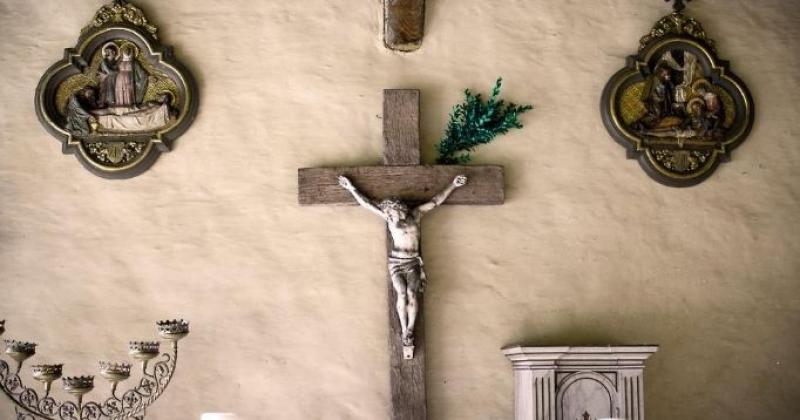Even though every Christian church we enter has a crucifix or cross prominently displayed, we can still find ourselves surprised by the cross in the events of life. There is something about human nature that seems to take for granted that things go well. When they don’t, we can be stopped short.
When we find ourselves surprised by the cross, we are in good company. The prophet Jeremiah felt duped by the Lord for the mockery he endured for proclaiming the prophetic message entrusted to him. Peter reacted strongly against the prediction of the Lord’s suffering and death, even protesting, “God forbid, Lord! No such thing shall ever happen to you” (Matthew 16:22).
For all of our resistance to suffering, Jesus never preached a Gospel of ease and comfort. He spoke openly about the cost of being his disciple. Today’s Gospel includes the clear words by which he prepared his followers for the road ahead of him and them: “Whoever wishes to come after me must deny himself, take up his cross, and follow me” (Matthew 16:24).
Self-denial is not popular in our culture of self-indulgence. Yet we all instinctively know that to achieve any worthwhile goal we have to make sacrifices. No one becomes a great musician, athlete or scholar without hours of practice, which require the ongoing discipline of choosing to forego other enjoyable activities. What keeps a person motivated to continue is the thought that the investment will pay off: Someday the skill he or she has honed will be radiant.
In walking the way of Jesus Christ, we have to decide whether the goal is worth the investment. If we, like the Psalmist, can say that our souls thirst for God, whose “kindness is a greater good than life” (Psalm 63:4), then we can trust that whatever sacrifices discipleship entails are worth it. This will depend on whether we have accepted the invitation extended by St. Paul to “not conform yourselves to this age but be transformed by the renewal of your mind” (Romans 12:2). Only if we accept the transforming grace of God can we see that “to offer your bodies as a living sacrifice” (Romans 12:1) is not the end in itself, but is, rather, a means to deeper union with our God.
Will the crosses of life still surprise us? Perhaps. We may even find ourselves, like Peter, wanting to reject suffering. Jesus reminds us, as he did Peter, that the avoidance of the cross is thinking as this world thinks but not as God does. We all long for the good things of life — love and enjoyment of spiritual and bodily goods. The cross is not the end of the story. Jesus must suffer and die and will rise on the third day. His resurrection, which passes through the way of the cross, can awaken our hope.
In this life, many trials come. If we take up our crosses and follow Christ, then the bigger surprise will come. The kingdom of God, beyond our imagining, will show us how worthwhile the patient bearing of the cross with Jesus was: “As with the riches of a banquet shall my soul be satisfied, and with exultant lips my mouth shall praise you” (Psalm 63:6). In that Kingdom, we shall be one with the God for whom we thirsted and for whom we were willing to deny ourselves to find our true home and our true selves.
